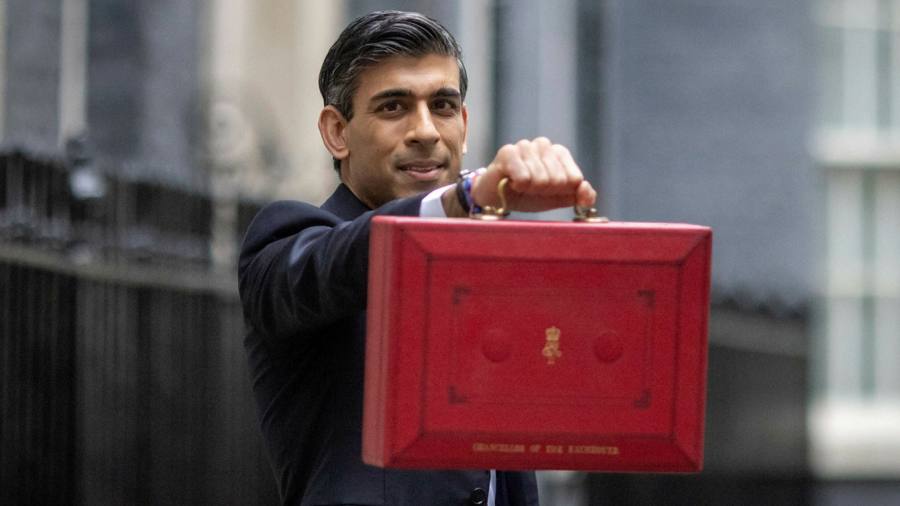Sunak’s tax-raising Budget helped drive up inflation, say MPs

Rishi Sunak’s latest Budget has contributed to a rise in inflation and there is a risk that the current government policy could generate a wage price spiral, according to an influential all-party group of MPs.
In its report on the October Budget, the Treasury committee also warned that the tax burden would be higher at the next election than at the last, even if the chancellor offered some sweeteners before people go to the polls.
At a time of rapidly rising energy, food and petrol prices, the accusation by a committee dominated by Conservative MPs that the government acts have worsened the UK’s cost of living crisis will be uncomfortable reading for the chancellor.
The committee noted that Sunak’s plan for a rise in national insurance contributions from April to clear an NHS treatment backlog and fund social care reforms would raise costs for employers because half of the tax increase is paid by companies, putting pressure on them to increase prices.
A number of Conservative ministers have been called on Sunak to delay or cut the increase. Jacob Rees-Mogg, leader of the House of Commons, and Lord David Frost, former Brexit secretary, have spoken out against it, while Kwasi Kwarteng, the business secretary, has criticized the plan. However, the chancellor’s allies insist there are no discussions over delaying to the rise.
The committee also found that “the large fiscal loosening” in the Budget, with more generous than expected increases in public spending, would also push up prices.
Not reserving their criticism for the chancellor, the MPs also warned Boris Johnson that his calls for higher wages were dangerous and bad economic policy.
Mel Stride, chair of the committee, said: “While the prime minister’s ambition to promote high wage growth is worthy, focusing on increasing wages without improving productivity is likely to be inflationary and risks contributing to a wage price spiral.”
Higher inflation will raise the cost of servicing government debt, both because it directly increased payments on bonds linked to price rises and because it increases the likelihood the Bank of England will raise interest rates.
The committee acknowledged that Sunak had shown he was “alert to the fiscal risks of higher inflation and interest rates becoming entrenched” and it urged the Treasury to “keep these risks at the forefront of their thinking when designing policies at future fiscal events”.
Higher inflation does not always hurt the public finances and can lead to lower borrowing if wages or profits rise sufficiently to bring in more tax revenues than expected.
But the committee said the years ahead were likely to be difficult for the public finances with little scope for large tax giveaways before the next election, even if the public finances continue to improve.
With the tax burden in this parliament already set to rise to levels not seen before in peacetime, with increases in national insurance, income tax and corporation tax, the MPs said pre-election tax cuts signed by Sunak would not reverse the action already taken.
The committee said: “It already appears to be a significant challenge for the tax burden, as a percentage of GDP, to be lower at the end of this parliament than at the beginning, because the chancellor’s tax rises have already been announced, and his fiscal headroom to reduce them is small. ”
Additional reporting by George Parker
Source link



